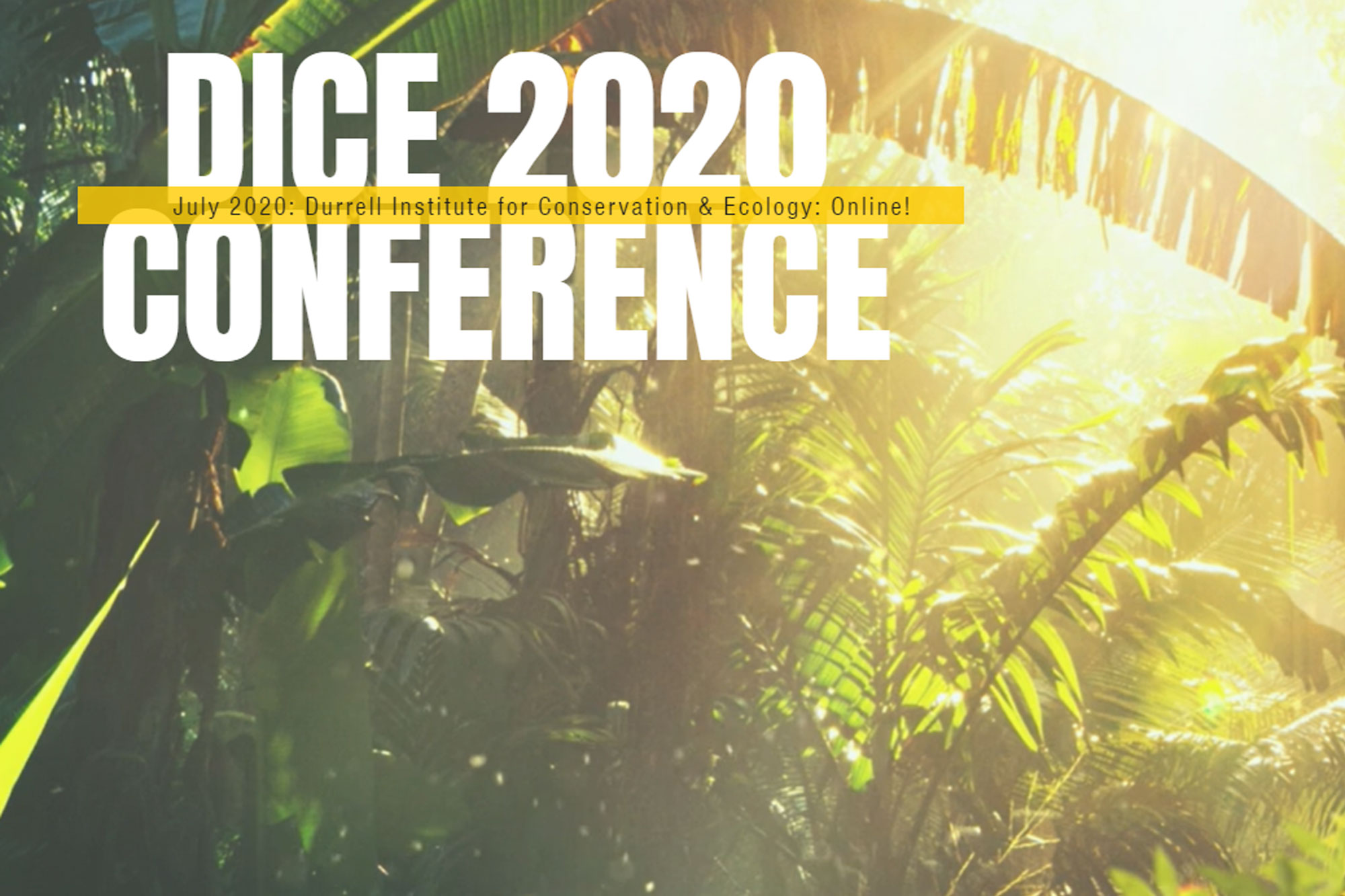The Durrell Institute of Conservation and Ecology (DICE) is proud to be holding a Twitter conference on July 23rd and 24th to showcase the work of DICE postgrad students, staff and alumni.
A Twitter conference is a way to share research and network, and each presenter will be given fifteen minutes to present six tweets about their work. To do so they can use a combination of text, photos, infographics, graphs, GIFs and videos (the more creative the better!).
Using the hashtag #DICECON20 so that anyone from around the world can tune in during the conference, making it a great way to communicate your work outside of the scientific community. Therefore, there will be the opportunity to ask and answer questions LIVE!
If you would like to present at the DICE Twitter Conference 2020, you must be affiliated within the DICE community, which includes all current postgraduate students, alumni, honorary & associate members, advisory board members and staff. Please register your details and submit your abstract before 15th June 2020.
As this conference is open to the public to participate, we encourage presenters to think about their potential audience but, most of all, we hope to see the wonderful diversity of research and creativity DICE has to offer!
This is an exciting opportunity to learn about the wide range of research being conducted around the world from the comfort of your home, office or field station.
Everyone is welcome to participate so please visit the conference website to find out more.
About DICE
One of the strengths of DICE is our fantastic network of members, honorary and associate colleagues, students and alumni who work together to achieve the DICE mission. DICE is committed to high-quality, practical, applied conservation research around the world and these are just a few of the topics covered by our members:
- Conservation effectiveness
- Biodiversity and wellbeing
- Wildlife trade and sustainable use
- Species monitoring and conservation
- Biodiversity offsetting and ‘no-net loss’
- Landscapes and livelihoods
- Human-wildlife coexistence
- Valuing nature and ecosystem services
- Designing conservation area networks
- Post-COVID conservation

